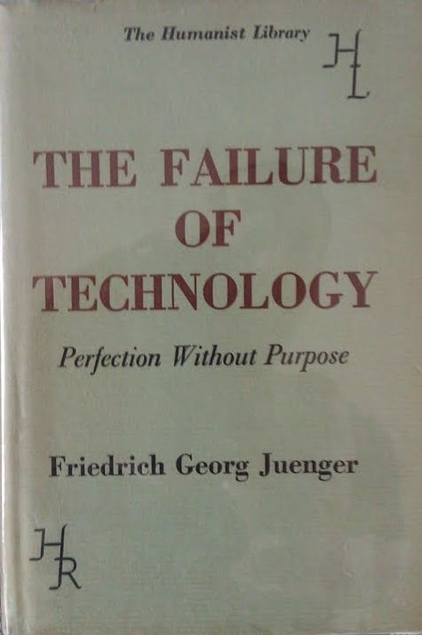Marie Marchand: The Minitel Saga: A French Success Story (1988)
Filed under book | Tags: · computing, france, networks, technology, telephone, video, virtual communities

The only English-language monograph on the popular Videotex online service Minitel, which operated in France between 1978-2012.
“Minitel was proposed and adopted in 1978, the same year that Simon Nora and Alain Minc submitted their influential report The Computerization of Society in which they coined the term ‘telematics’. Minitel also came on the heels of a “phone-in-every-home” program (pre-dating the One Laptop Per Child project by many decades) that was proposed in 1975 by then-general manager of France Telecom Gérard Théry to increase subscriber telephone lines; Théry firmly believed the telephone was going to be the cornerstone of any computerized country – “A phone in every home is the cutting edge of a computer in every home.” Just three years later in 1978, 2500 people in the Parisian suburb of Vélizy had volunteered to use the system initially called “Teletel.” Marie Marchand tellingly writes in The Minitel Saga: A French Success Story that while “households used the system six times a month on average, consulting 20-odd services for a total connect time of one-and-a-half hours per month…”, “These overall figures concealed a number of pronounced disparities…Age disparity: people under 30 used their terminals more than those over 30. Gender disparity: women used them but little. Class disparity: top executives connected more often than midle management types, who in turn called more often than blue collar workers. Further, a flagrant disparity emerged in terms of services used. Five service providers alone accounted for over half the calls…” (53)
In 1982, instead of delivering increasingly expensive and difficult to update telephone book directories, France Telecom loaned Minitel terminals to residents all across France. By 1988, 3.5 million Minitel sets had been installed with users logging six million hours per month and taking advantage of 8000 services. And by 1999, roughly 9 million terminals could access to the network in turn used by 25 million people who took advantage of 26,000 services. By this time, not only had Minitel inaugurated an era that continues today of disparities between visible and invisible (or even absent) users based on gender, race, sexuality, and socio-economic status, but it also inaugurated the era of online pornography, the use of networks to coordinate student protests, and experiments with pseudonymous online identity.” (Lori Emerson)
Translated and adapted from the French by Mark Murphy
Publisher Larousse, Paris, 1988
ISBN 2035182409, 9782035182401
197 pages
via Lori Emerson
Resources: Minitel.org, Minitel Research Lab.
Comment (0)Charles Stross: Accelerando (2005)
Filed under fiction | Tags: · artificial intelligence, biotechnology, posthuman, science fiction, technological singularity, technology

“The Singularity. It is the era of the posthuman. Artificial intelligences have surpassed the limits of human intellect. Biotechnological beings have rendered people all but extinct. Molecular nanotechnology runs rampant, replicating and reprogramming at will. Contact with extraterrestrial life grows more imminent with each new day.
Struggling to survive and thrive in this accelerated world are three generations of the Macx clan: Manfred, an entrepreneur dealing in intelligence amplification technology whose mind is divided between his physical environment and the Internet; his daughter, Amber, on the run from her domineering mother, seeking her fortune in the outer system as an indentured astronaut; and Sirhan, Amber’s son, who finds his destiny linked to the fate of all of humanity.
For something is systematically dismantling the nine planets of the solar system. Something beyond human comprehension. Something that has no use for biological life in any form…”
Publisher Ace Books, New York, July 2005 / Orbit Books, London, August 2005
Creative Commons Attribution-NonCommercial-NoDerivs 2.5 License
ISBN 0441012841 / 1841493902
390 pages
Friedrich Georg Jünger: The Failure of Technology: Perfection Without Purpose (1946–)
Filed under book | Tags: · automation, critique of technology, environment, philosophy of technology, technology

Written in the spring and early summer of 1939 and “first published in German as Die Perfektion der Technik in 1946, F.G. Jünger argues that technology has become second nature and will bring “the downfall of the state”. F.G. Jünger, a literary writer and essayist, was the brother of Ernst Jünger. Both represented the intellectual right-wing of the ‘conservative revolution’ in the Weimar Republic and had ambivalent relations to the Third Reich.
The Failure of Technology was a major source for Heidegger’s 1950s turn towards a philosophy of technology in which technology, as second nature, determines human existence.” (FC)
Translated by F.D. Wieck
Introduction by Frederick D. Wilhelmsen
Publisher H. Regnery, Hinsdale, IL, 1949
New edition, 1956
xvi+189 pages
via FC
EPUB
PDF (Introduction missing)

